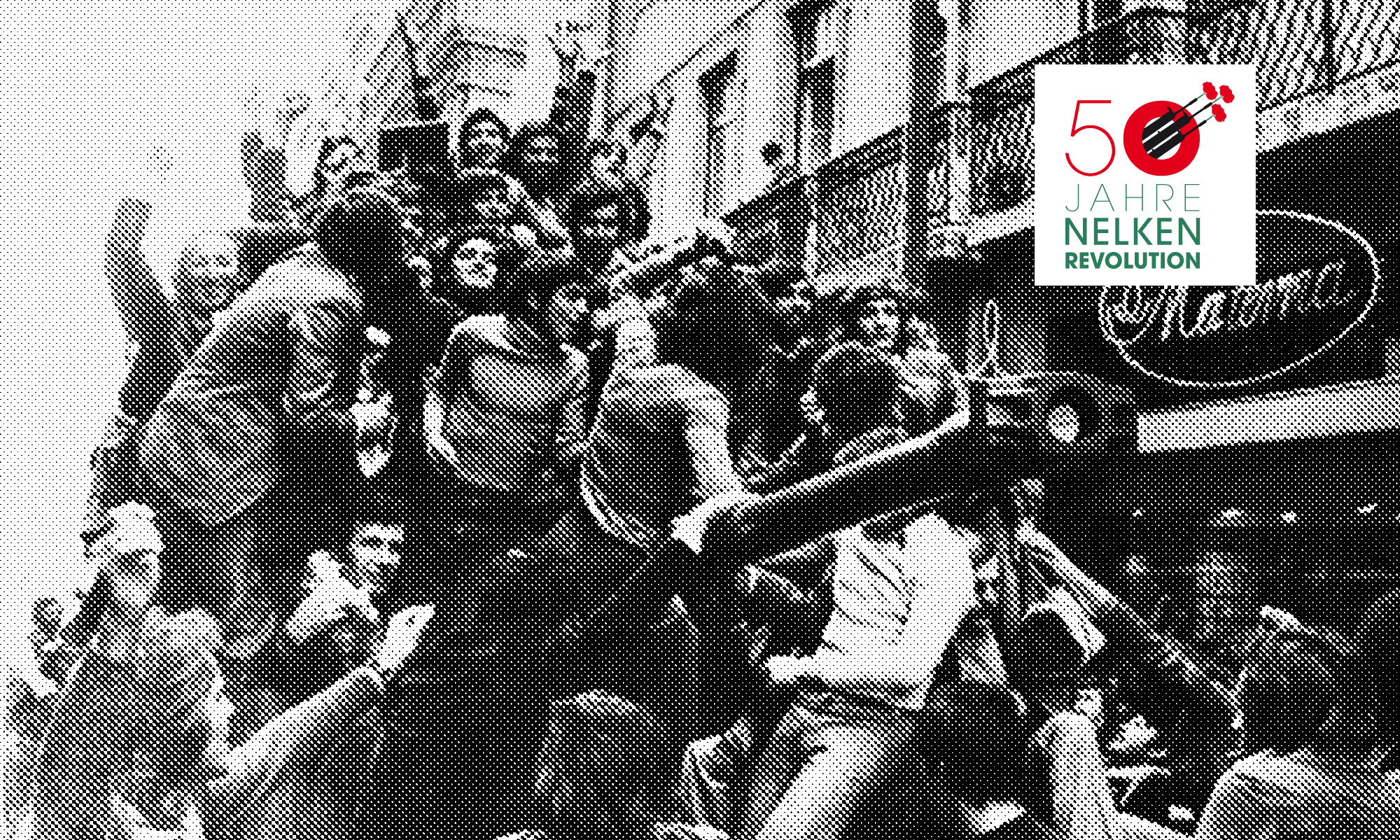Exploitation in the Portuguese colonies of Guinea-Bissau, Angola and Mozambique was based on forced labour, racism and repression. The colonies were suppliers of cheap raw materials such as cotton and sugar cane and markets for expensive Portuguese products.
As the Salazar regime suppressed any democratisation in the colonies, the liberation movements began an armed struggle in the 1960s. The colonial war soon swallowed up 50 per cent of the national budget, and compulsory military service was increased to four years, two of which were spent in the colonies. Portugal was plunged into a deep military, economic and political crisis.
Even brutal warfare failed to stop the anti-colonial revolution. Massacres of the African civilian population stirred up the Portuguese and public opinion of the world. Support for the liberation movements grew at home and abroad. Middle-ranking officers, with the secret approval of some generals and parts of the capital, wanted to end the colonial war. To do this, the fascist regime of the Estado Novo had to be overthrown.
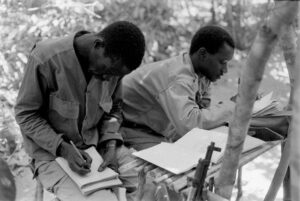
PAIGC guerrillas in Guinea-Bissau use a pause in the fighting to educate themselves. Photographed in 1974 by Roel Coutinho, Dutch microbiologist and PAIGC tropical doctor.
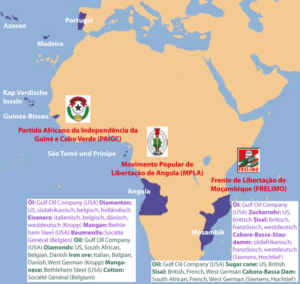
Red: Liberation movements in Guinea-Bissau and Cape Verde Islands, Angola and Mozambique
Violet: Foreign capital in Angola and Mozambique
The exploitation of the colonies passed from Portuguese to foreign capital in the course of the war.
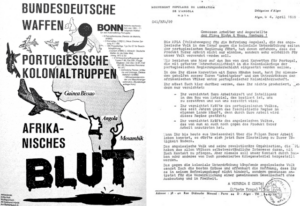
Left: Western countries supported the Portuguese colonial regime economically, militarily and politically. Resistance to this formed in many countries.
Right: MPLA appeal to „Fellow comrade worker“ of Blohm & Voss not to build warships for Portugal. On 13 October 1969, a corvette was severely damaged in an explosives attack in the port of Hamburg.
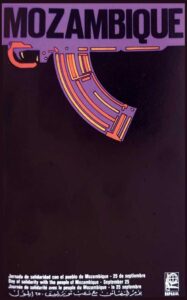
Cuban poster from 1969 for the Day of Solidarity with the People of Mozambique. The Marxist liberation movements were supported by non-aligned and socialist states.
Images
Roel Coutinho, commons.wikimedia.org, ASC_Leiden_-_Coutinho_Collection_-_5_01_-_PAIGC_soldiers_in_Guinea-Bissau_-_Guerrillas_at_school_-_1974.tif, CC BY-SA 4.0
Stiven David Licon Contreras, commons.wikimedia.org, Logotipo_FRELIMO.png, CC BY-SA 1.0
Bourrichon, commons.wikimedia.org, Portuguese_colonial_war-fr.svg, bearbeitet, CC BY-SA 3.0
Aktionskreis Dritte Welt Dortmund
https://sds-apo68hh.de/wp-content/uploads/2020/04/1969.04.04-Brief-MPLA-an-Blohm-Voss-Arbeiter-Q.-Uni-HH-Archiv.pdf
Enrique Martinez Blanco, OSPAAAL – Organización de Solidaridad de los Pueblos de Asia, África y América Latina
